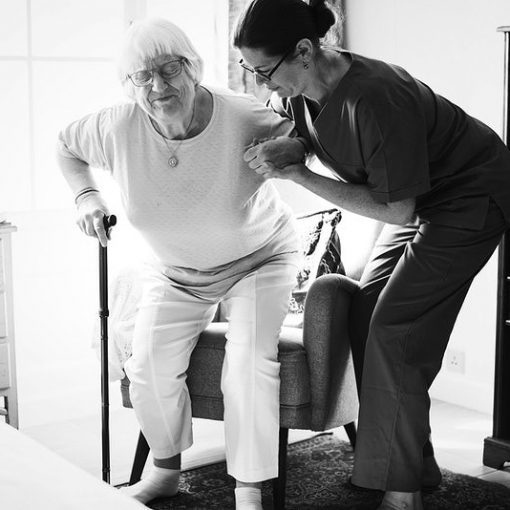Palliative care is a way of promoting a better life for patients and their loved ones experiencing challenges related to severe sickness by improving life and alleviating agony (WHO 2020). Patient education is to provide the patients and their loved ones with an understanding of their health and free interaction. It enables patients to express their wishes and allows them to understand the services they need. (Adapa et al. 2020.) According to the literature review (Kohonen et al. 2023), patient education starts with training health professionals’ and goes all the way down to the patients to improve their quality of life.
Palliative care is no longer limited to cancer patients nearing the end of life but also includes a wide range of other terminal illnesses. For instance, there is evidence that by proper referral to appropriate services heart failure patients’ admission to hospital care has been reduced. (Ivany & While 2013; Dieplinger et al. 2017)
Effective communication, a key to a better outcome
Effective communication is critical in palliative care which strives to meet patients’ medical, psychological, social, and spiritual needs. It expresses empathy and delivers a message that the patient is valued and supported in their condition. (Semlali et al. 2020; Nyatanga 2017.) A trusting nurse-patient relationship and effective communication skills ease the patient’s fear and anxiety. Semlali et al. (2020) add that cross-cultural education helps to illustrate how to deal with cultural variety without prioritising one culture over another. Healthcare professionals, especially nurses, must not only establish a supportive connection with the patient when providing palliative care but also acknowledge the individual’s desire for self-determination, holistic treatment, and understanding of life’s purpose (Isler 2017).

Pelto et al. (2019) point out that the language used in training patients must be easy to understand, the learning environment needs to be peaceful and sufficient time allowed for the session. On top of oral and written instructions, videos, voice recording, and internet-supported education have been found useful. Professional guidance on the patient’s care and somatic symptom management assists them in retaining their mental state and enables them to function according to their capacities (Idman 2015).
Adequate training of health care professionals is the key to the ability to deliver efficient services in palliative care (Ansari et al. 2018). Kohonen et al. (2023) show that cancer patients have sufficient knowledge of palliative care and do not have negative impressions of the care, which indicates that they benefit from it. However, more people would benefit from palliative care if only they had a clear understanding of it.
Authors
Taru Kohonen, Hellen Nalubwama and Irene Suomela are graduate nursing students from LAB University of Applied Sciences.
Sini Hämäläinen works as a Senior Lecturer in LAB University of Applied Sciences.
References
Adapa, K., Jain, S., Kanwar,R., Zaman, T., Taneja, T., Walker, J. & Mazu, L. 2020. Augmented reality in patient education and health literacy: a scoping review protocol. Cited 1 Nov 2023. Available at e038416.full.pdf (bmj.com)
Ansari, M., Rassouli, M., Akbari, M., Abbaszadeh, A. & Sari, A. 2018. Educational needs on palliative care for cancer patients in Iran: a SWOT analysis. International Journal of Community Based Nursing & Midwifery. Cited 23 Apr 2023. Available at https://www.ncbi.nlm.nih.gov/pmc/articles/PMC5845115/
Dieplinger, A., Sari Kundt, F. & Lorenzl, S. 2017. Palliative care nursing for patients with neurological diseases: what makes the difference? British Journal of Nursing, Vol 26 (6). Cited 20 Jul 2023. Available at https://web-s-ebscohost-com.ezproxy.saimia.fi/ehost/pdfviewer/pdfviewer?vid=0&sid=cc483852-c6c7-4b55-9334-af7250dfec36%40redis
Idman, I. 2015. Psykososiaalinen tuki ja psyykkisten oireiden hoito syöpäpotilailla. Duodecim Oppiportti. Cited 5 Aug 2023. Available at https://www.oppiportti.fi/op/pli00132/do?p_haku=palliatiivinen%20potilasohjaus#q=palliatiivinen%20potilasohjaus
Isler, A. 2017. Palliative and Hospice Care versus Standard Care on Quality of Life and Suffering. Kentucky Nurse, Vol. 65 (3), 6–7. Cited 16 Jul 2023. Available at https://web-s-ebscohost-com.ezproxy.saimia.fi/ehost/detail/detail?vid=0&sid=e48bd0c5-d229-491e-8e20-377d35694a97%40redis&bdata=JnNpdGU9ZWhvc3QtbGl2ZQ%3d%3d#AN=123942369&db=c8h
Ivany, E. & While, A. 2013. Understanding the palliative care needs of heart failure patients. British Journal of Community Nursing, Vol 18 (9), 441–445. Cited 23 Apr 2023. Available at doi:10.12968/bjcn.2013.18.9.441
Kohonen, T. Nalubwama, H. & Suomela, I. 2023. Patient education in palliative care. Bachelor’s thesis. LAB University of Applied Sciences. Cited 2 Nov 2023. Available at https://urn.fi/URN:NBN:fi:amk-2023110128407
Nyatanga, B. 2017. The small things matter in end-of-life care: a personal reflection. British Journal of Community Nursing, Vol. 22 (3), 152. Cited 23 Apr 2023. Available at doi:10.12968/bjcn.2017.22.3.152
Pelto, A., Hökkä, M., Kajula, O. & Kaakkinen, M. 2019. Kivunhoidon ohjaus syöpää sairastavan potilaan ja hänen läheisensä kuvaamana palliatiivisessa hoidossa – integroitu kirjallisuuskatsaus. Tutkiva hoitotyö. Cited 2 Aug 2023. Available at http://jultika.oulu.fi/files/nbnfi-fe2019082124966.pdf
Prostock-studio. 2023. Friendly young woman psychologist having conversation with senior people. Adobe stock. Cited 2 Nov 2023. Available at to a limited extent https://stock.adobe.com/fi/images/friendly-young-woman-psychologist-having-conversation-with-senior-people/486503373?prev_url=detail
Semlali, I., Tamches, E., Singy, P. & Weber, O. 2020. Introducing cross-cultural education in palliative care: focus groups with experts on practical strategies. BCM Palliative Care. Cited 1 Sep 2023. Available at https://doi.org/10.1186/s12904-020-00678-y
WHO. 2020. Palliative care. Cited 2 Nov 2023. Available at https://www.who.int/news-room/fact-sheets/detail/palliative-care




